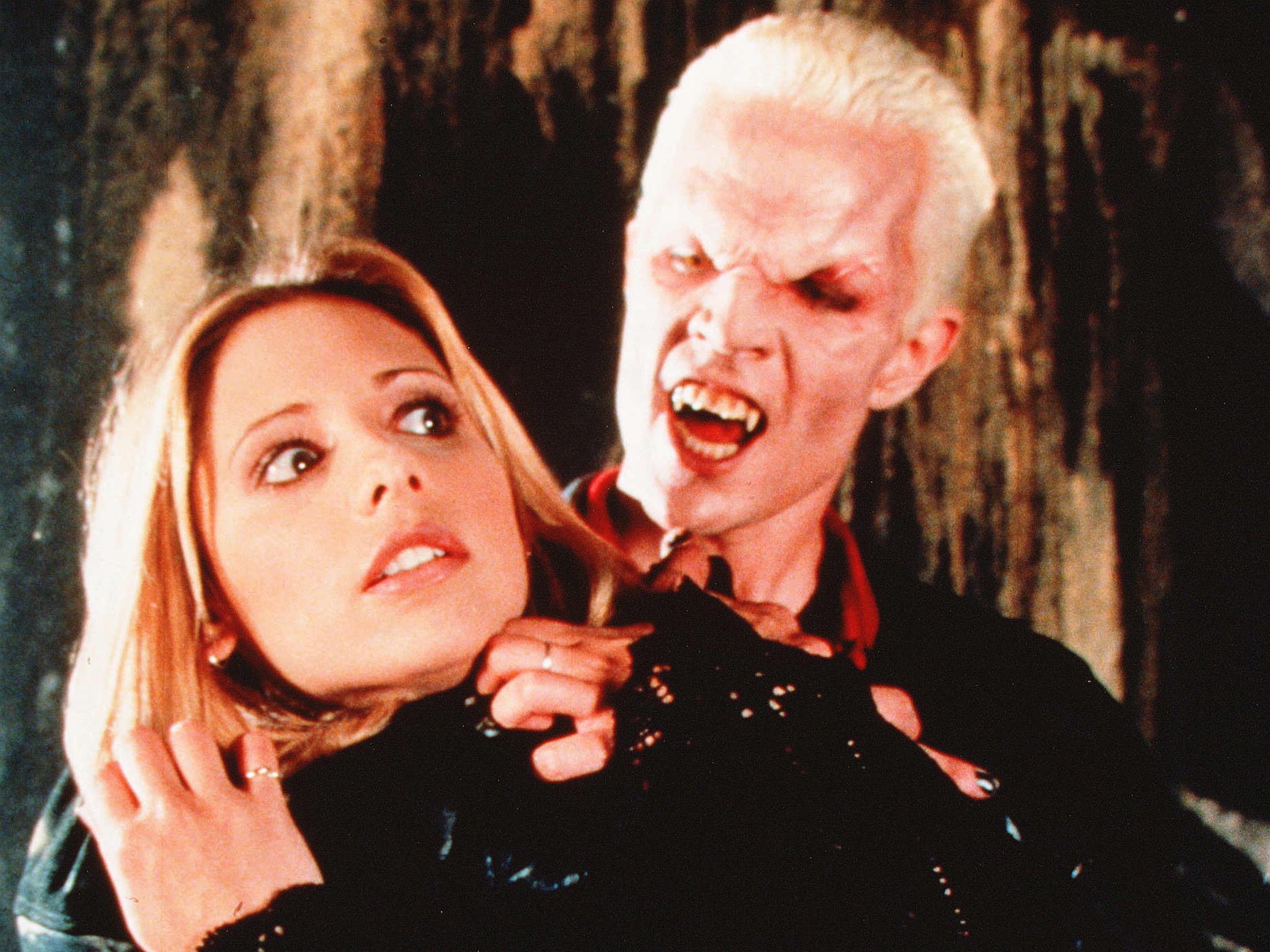The Independent's journalism is supported by our readers. When you purchase through links on our site, we may earn commission.
Buffy fans had heard the Joss Whedon allegations – we chose not to listen
Joss Whedon’s work sparked vast fan communities who knew everything about their favourite shows and the actors in them, but who chose to overlook allegations of poor behaviour, writes Adam White

To be a Buffy the Vampire Slayer fan when it was on the air was to navigate two worlds. In one, its creator Joss Whedon was deified for writing one of the greatest TV series ever made, and celebrated as a feminist hero. In the other, many of his actors would paint a portrait of a difficult work environment, where clashes were typical and stars were often left uncomfortable or aggrieved. For years, the former world eclipsed the latter.
On Wednesday (10 February), actor Charisma Carpenter, who portrayed the ebullient cheerleader-turned-detective Cordelia on Buffy and its spin-off Angel, accused Whedon of “abusing his power” on the set, and firing her from Angel after she gave birth. Within hours, actor Amber Benson, who played witch Tara on Buffy, offered her support, alleging that the show was filmed amid “a toxic environment” that “started at the top”. Sarah Michelle Gellar, who starred as Buffy, then said she was “proud” of her former co-stars for speaking out. Michelle Trachtenberg, who played Buffy’s little sister Dawn, used Instagram to condemn Whedon’s “not appropriate behaviour” while they worked together. According to Variety, Whedon has so far declined to comment on the allegations. The Independent has reached out to his representative.
Read more - Joss Whedon: Brief timeline of allegations as Buffy stars denounce creator
Carpenter’s allegations are not new. While appearing at a 2009 fan convention, she claimed that she had been penalised for getting pregnant, apparently disrupting the storyline of her character, and subsequently dropped from Angel as a result. Just last year, speaking to journalist Evan Ross Katz on his podcast, she claimed she was “afraid” to go public with her allegations in 2003, the year in which she was fired. “I had a little baby to feed and I was a primary caretaker of my family,” she told Katz. “I couldn’t afford to say my truth.”
The murkiness of Carpenter’s departure from Angel had long been gossiped about in Buffy and Angel fan circles, as had speculation about toxicity on the Buffy set. There were always hints of unpleasant power dynamics. Whedon would mock and disparage Gellar’s film work at industry events, calling Cruel Intentions “a porny” (“I did what I think is my best work to date in that movie,” Gellar told Premiere Magazine in 1999. “Brushing it off by calling it ‘a porny’ is unbelievably hurtful to me. He owes me flowers. And that’s on the record.”) Gellar’s husband Freddie Prinze Jr said in 2003 that his wife dealt with “a lot of nonsense” behind the scenes of the show. Gellar herself would express discomfort over filming sadomasochistic sex scenes. Angel producer David Fury claimed in 2004 that Gellar and Whedon were combative. “There was a perceived notion, on both sides, I can say, between Sarah and Joss of ingratitude for both parties,” he said. “Joss doesn’t feel like Sarah’s ever shown the proper amount of gratitude for what he’s done for her and her career, and I think she feels the same way.”
Back then, in a cultural climate that routinely villainised young women in the public eye, it was often Gellar who bore the brunt of any fan backlash. Whedon was consistently afforded the benefit of the doubt. In public, he was erudite and charming. He regularly interacted with fans on Buffy message boards, and he was a creative genius. A cult-like devotion sprung up around him, as if he could do no wrong because his politics were sound and his work was affecting. Denial was baked into Buffy fandom.
Somewhere along the line, the denial shifted. Many of us have woken up to the lies sold about “difficult geniuses”, or great art being used to defend or excuse the bad behaviour of its creators. Buffy wasn’t great because of how it was made. It wasn’t one of television’s best shows because its cast was unhappy, or because it was allegedly produced amid toxicity. All were choices – to hurt and disempower, and to make others feel small.
The allegations against Whedon will reverberate among the same fans that rushed to defend him all those years ago. That’s the power of great art and those responsible for it. When their work touches you, or reflects back at you all of your trauma, joy or struggles, as Buffy did, you do everything you can to keep it sacred.
But it shouldn’t have taken more than a decade for Carpenter’s story to be so widely reported. It shouldn’t have taken years of women being shunned on fan forums for people to recognise the misogyny at work. Next time, when allegations are made about people we like, the very least we can do is listen. Even when you really don’t want to hear it.
Subscribe to Independent Premium to bookmark this article
Want to bookmark your favourite articles and stories to read or reference later? Start your Independent Premium subscription today.

Join our commenting forum
Join thought-provoking conversations, follow other Independent readers and see their replies